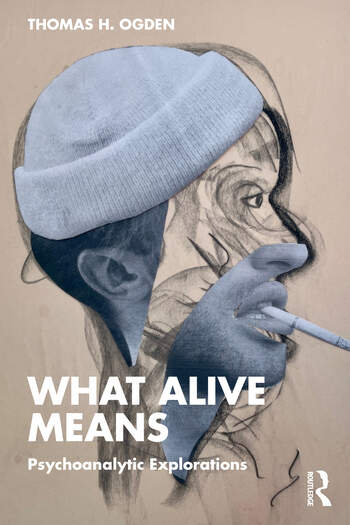Post-traumatic Attachments to the Eerily Moving Image: Something to Watch Over Me
Part of The Psychoanalysis and Popular Culture series - more in this series

Book Details
- Publisher : Routledge
- Published : October 2021
- Cover : Paperback
- Pages : 178
- Category :
Trauma and Violence - Category 2 :
Psychoanalysis - Catalogue No : 95894
- ISBN 13 : 9781032027883
- ISBN 10 : 9781032027
There are currently no reviews
Be the first to review
This book explores how experiences of traumatic isolation and neglect - in childhood and in adulthood, and at both the family and the state level - may create a desire in us to be parented by certain kinds of screen media that we unconsciously believe may be "watching over" us when nothing else seems to be.
Andrew Asibong explores how viewers make psychical use of eerily moving images, observed in film and television and later taken into an already traumatised mind, in order to facilitate some form of reparation for a stolen experience of caregiving. It explores the possibility of a media-based "working through" of both the general traumas of early environmental failure and the particular traumas of viewers racialised as Black, eventually asking how politicised film groups in the age of Black Lives Matter might both heal from a troubled past and prepare for an uncertain future through the spontaneous discussion - in the here and now - of enlivening images of potentially deadly vulnerability.
Post-traumatic Attachments to the Eerily Moving Image will be of great interest to academics and students of media, film and television studies and psychoanalytic studies.
Reviews and Endorsements
"Drawing on an encyclopaedic knowledge of cinema and television, as well as a nuanced understanding of clinical psychodynamic practice, and a generous openness to insights gleaned from his own personal experience, Andrew Asibong offers us a brilliant analysis of the psychic function of the moving image in relation to both defence and repair in the face of post-traumatic experience. Arguing that we may turn to particular moving images when in serious psychic danger in order to attempt a 'cure', or at least to survive, Asibong draws us into a journey that links the visual realm of film and the complex terrain of fantasy in clinical psychoanalysis, in order to help us understand film-watching as itself a form of reparative fantasy. For children whose caregivers may have been unable to reflect their inner world, not just because of their own unworked through traumas but because of the racist and unequal worlds they find themselves in, film may 'watch over' us, providing the child with a landscape which, in all its fantastical potentiality, may enable new links, new psychic connections to internal figures to be made. Innovative, moving, scholarly, and brilliantly argued, this is a truly original contribution to our understanding of the power of the moving image to shape and repair our inner worlds." - Lisa Baraitser, Professor of Psychosocial Theory, Birkbeck, University of London.
"This is an extraordinary book, taking us into the experiences of individuals who are saved from traumatic childhoods by films and television that seem to "watch over" them like a parental therapist. Tracking through his own biography and working with the reactions of a small community of viewers responding to the television series Six Feet Under, Asibong ends with one of the most powerful evocations of solidarity and hope in the face of racialised violence that I have ever read. This is a profoundly moving and life-enhancing work." - Stephen Frosh, Professor of Psychology, Birkbeck, University of London.
"In this illuminating and deeply moving work, Asibong takes us on an intimate journey into the intrapsychic world of the traumatized self. Weaving his own dreams and memories with an impressive range of theoretical vantage points, he offers us a unique view of the ways that cultural experience may offer revelation, solace, and transformation. Exploring the intersection of film, television, and psychotherapy, Post-traumatic Attachments to the Eerily Moving Image helps us envision a world attentive to its own hurt and disorder." - Jed Sekoff, PhD, Training Analyst, Psychoanalytic Institute of Northern California.
"In Post-traumatic Attachments to the Eerily Moving Image, Andrew Asibong presents readers with a brilliant meditation on our emotional attachments to moving images, generously informed by his work as a film theorist, activist and psychotherapist. Drawing on an impressive range of psychotherapeutic approaches and moving images while formulating a new psychosocially-informed methodology, Asibong skilfully explores the ways in which films and television shows provide psychic care for people who have experienced environmental deprivation and trauma. Asibong considers, in an astute and affecting way, how repeated engagements with moving images can facilitate individuals re-connecting with parts of themselves that were previously inaccessible to them on account of developmental trauma. The book also offers readers a meticulously theorised discussion of how films and television series provide sites for group reflection and solidarity in societal contexts underpinned by crisis and racialised violence. This scholarly and reflective book is an indispensable resource for anyone wishing to understand how moving images can function as objects for emotional connection and survival, while also operating as conduits for psychic growth." - Noreen Giffney, Psychoanalytic Psychotherapist, and Lecturer in Counselling, Ulster University, Belfast, Northern Ireland.
About the Author(s)
Andrew Asibong,, PhD, is a psychotherapist and film theorist. He is a member of the Tavistock Society of Psychotherapists and a registrant of the British Psychoanalytic Council.
Customer Reviews
Our customers have not yet reviewed this title. Be the first add your own review for this title.
You may also like
The Authority of Tenderness: Dignity and the True Self in Psychoanalysis
Paul Williams
Price £17.99
save £2.00







